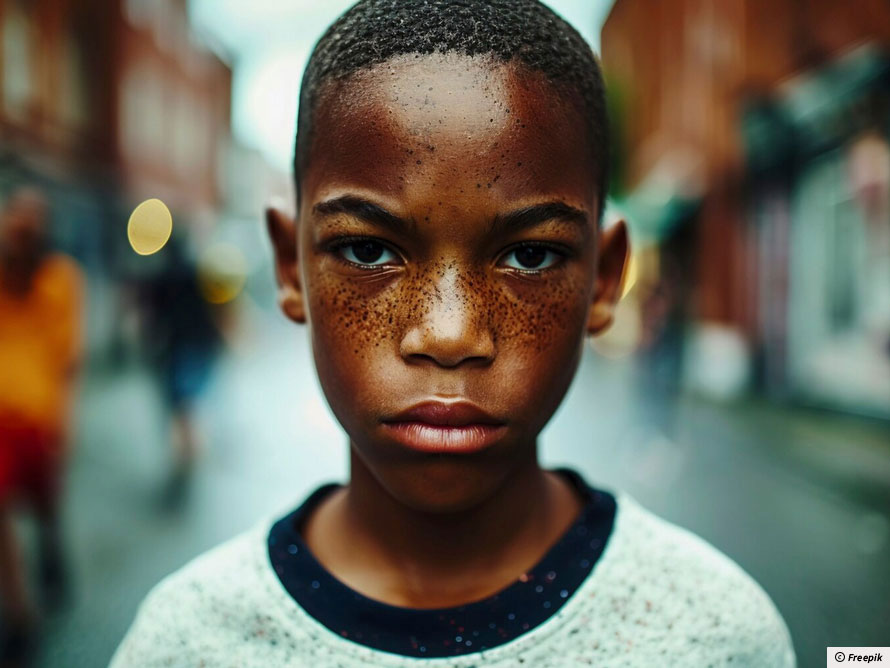Refugee Boy tells the story of Alem Kelo, a boy forced to flee the war between Ethiopia and Eritrea. Originally a novel by Benjamin ZephaniahA British writer and poet who drew on his experiences of racism and his Jamaican heritage., published in 2000, it was turned into a play by Lemn Sissay in 2013. Both Zephaniah and Sissay, the children of migrants to the UK, have said that the story speaks to some of their own experience in making a home in Britain. Brought to London by his father, who then returns to Eritrea, Alem lives at first in a children’s home, and is then adopted by a foster family, the Fitzgeralds. Alem struggles to adjust to his new life, and the violence and racism that he experiences in Britain is paralleledCompared, held up against. to the violence in the Ethiopian-Eritrean conflict. When Alem’s mother is killed in Eritrea, his father returns to be with him in London. As they struggle for asylumWhen a state agrees to shelter somebody who is fleeing dangerous circumstances. The right to asylum is protected in international law by the 1951 Refugee Convention. and experience the indifference of the British courts, Alem and his father argue about what the best way to guarantee their safety is. Mr Kelo wants to appeal to the courts, while Alem thinks that rallying the local community together will do more. At the final moment of the rally, Mr Kelo is murdered, and the play ends with Alem still lost, looking for the North Star.
Refugee Boy

Glossary
Benjamin Zephaniah - A British writer and poet who drew on his experiences of racism and his Jamaican heritage.
Paralleled - Compared, held up against.
Asylum - When a state agrees to shelter somebody who is fleeing dangerous circumstances. The right to asylum is protected in international law by the 1951 Refugee Convention.
Dysfunctional - Not working properly.
- Someone who is important due to their rank or job.
